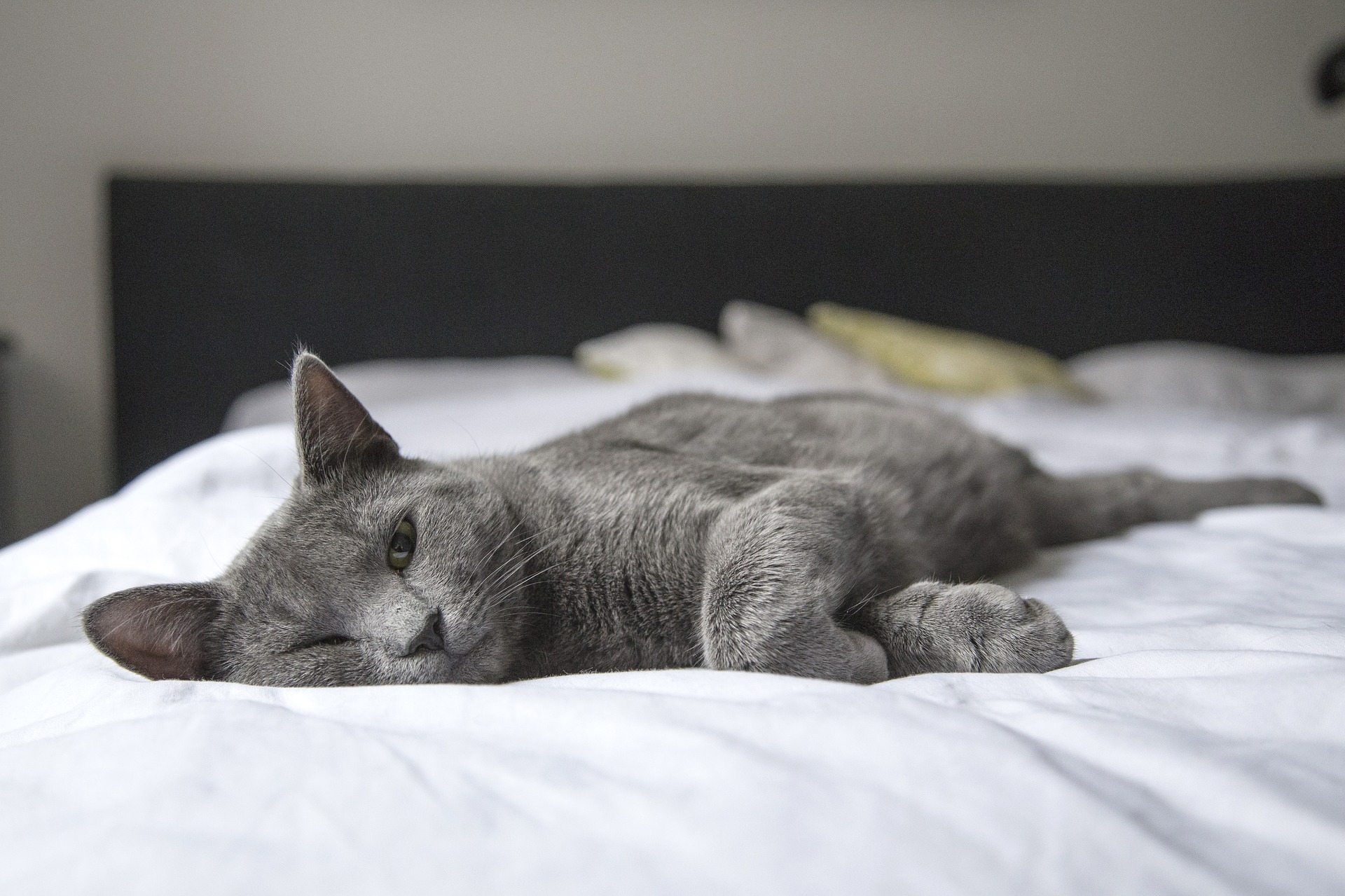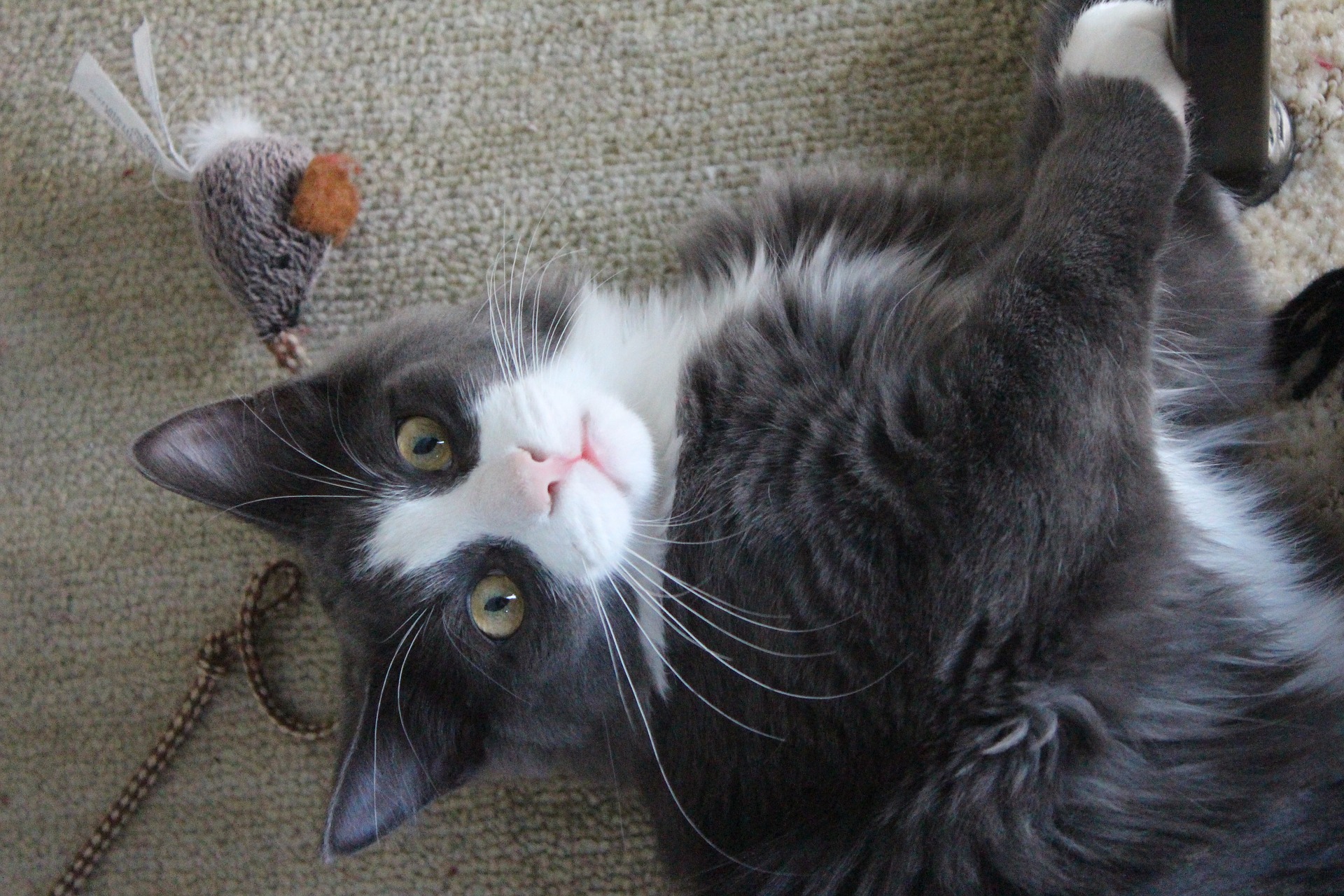We’ve all been there: You’re blissfully asleep, in the middle of a great dream, when all of a sudden you’re awakened by persistent meowing. You think that certainly something has to be terribly wrong, but when you open your eyes, your cat is there, purring, happy that you’re now awake to pat him and pay attention to him. It’s frustrating, and if your cat makes a habit of it, you’ll have a hard time getting enough sleep. But getting mad at your cat isn’t the answer, either. If you’re wondering “why does my cat wake me up to be petted,” chances are there’s a logical answer. The good news is that there are also multiple ways you can solve this problem so that you and your cat can sleep through the night again.

Why does my cat want to be petted in the middle of the night?
According to WebMD, a cat that wakes you up in the middle of the night is just listening to its internal clock. Cats often adapt to your activity schedule, but your cat’s ancestors are nighttime hunters. Your cat may be more active at night simply because it’s a natural response.
Other factors can contribute to how active your cat wants to be at night. If you’re gone all day and the house is quiet, your cat probably spends the day sleeping. This means she’s well-rested when you get home and doesn’t need to sleep through the night. Instead, since you’re home, she might seek out your attention and try to get you to pat her — even if you happen to be asleep.
Why does my cat wake me up to cuddle?
WebMD explains that your cat might wake you up because he’s bored and looking for attention and affection. Meowing and pawing at you might get you up and out of bed, meaning something exciting might happen. Your cat knows that if he wakes you up he’ll get some sort of social interaction, even if you’re mad at him and that interaction is a negative one. Plus, if you get up and feed your cat in an attempt to keep him occupied so you can sleep, then your cat gets plenty of perks out of the situation.

How to keep your cat from waking you up
How you respond to your cat trying to wake you up can make the situation better or worse. Unfortunately, some of your first instincts are probably the wrong ways to handle the problem. If you get up, give your cat attention, and give her food, then she’s just learned that waking you up means that great things happen and her night becomes a lot more interesting.
Instead, focus on why your cat’s waking you up. Chances are he’s craving social interaction, playtime, and food. You can offer all of these activities during the day to help keep your cat satisfied so that he’s more likely to sleep through the night.
To accomplish this, create a routine for your cat or kitten. That routine needs to consist of hunting, eating, grooming, and sleeping. You can help your cat hunt by playing with toys such as wand toys so your cat has the satisfaction of capturing her prey. After playtime is over, give your cat a bit of food. Your cat will typically groom herself after eating, which helps her to relax. Then, with her belly full and her energy used up, she’ll be ready to sleep.
You can implement this routine at bedtime to help your cat settle down for the night. Don’t forget that incorporating several play sessions during the day can also help your cat use that energy in a positive way.
While the above routine works for many cats, you can use other strategies to encourage your cat to sleep too. Consider using room-darkening shades, since even a little bit of light coming in through the windows can prompt your cat to become active. If you think that your cat’s waking you up is driven by hunger, consider using an automatic feeder to give your cat small meals both during the day and throughout the night. If your cat continues trying to wake you up, you might need to think about closing him out of your room at night. If you do this, wearing earplugs or running a fan or sound machine can help to block out any sounds of his meowing.
Editors' Recommendations
- Wondering why cats chirp? Fascinating reasons why your cat chirps at birds (and you)
- How to cat-proof your balcony before the unthinkable happens
- There’s a totally normal reason cats throw up after eating grass – here’s why
- When can kittens leave their mom? Don’t separate them too early
- When do kittens’ eyes change colors? The answer is so cool – here’s what to know



